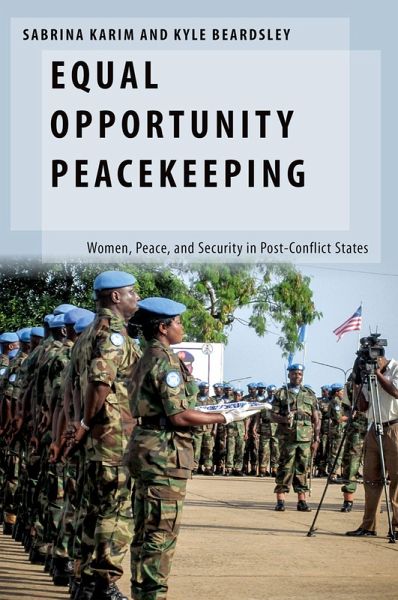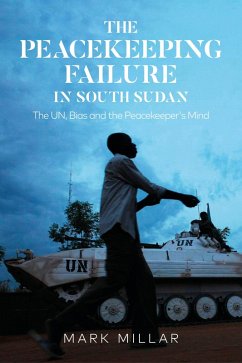
Equal Opportunity Peacekeeping (eBook, PDF)
Women, Peace, and Security in Post-Conflict States
Versandkostenfrei!
Sofort per Download lieferbar
14,95 €
inkl. MwSt.
Weitere Ausgaben:

PAYBACK Punkte
7 °P sammeln!
Recent developments such as Sweden's' Feminist Foreign Policy, the "Hillary Doctrine," and the integration of women into combat roles in the U.S. have propelled gender equality to the forefront of international politics. The UN Department of Peacekeeping Operations, however, has been integrating gender equality into peacekeeping missions for nearly two decades as part of the women, peace and security agenda that has been most clearly articulated in UNSC Resolution 1325. To what extent have peacekeeping operations achieved gender equality in peacekeeping operations and been vehicles for promoti...
Recent developments such as Sweden's' Feminist Foreign Policy, the "Hillary Doctrine," and the integration of women into combat roles in the U.S. have propelled gender equality to the forefront of international politics. The UN Department of Peacekeeping Operations, however, has been integrating gender equality into peacekeeping missions for nearly two decades as part of the women, peace and security agenda that has been most clearly articulated in UNSC Resolution 1325. To what extent have peacekeeping operations achieved gender equality in peacekeeping operations and been vehicles for promoting gender equality in post-conflict states? While there have been major improvements related to women's participation and protection, there is still much left to be desired. Sabrina Karim and Kyle Beardsley argue that gender power imbalances between the sexes and among genders place restrictions on the participation of women in peacekeeping missions. Specifically, discrimination, a relegation of women to safe spaces, and sexual exploitation, abuse, harassment, and violence (SEAHV) continue to threaten progress on gender equality. Using unique cross-national data on sex-disaggregated participation of peacekeepers and on the allegations of SEAHV, as well as original data from the UN Mission in Liberia, the authors examine the origins and consequences of these challenges. Karim and Beardsley also identify and examine how increasing the representation of women in peacekeeping forces, and even more importantly through enhancing a more holistic value for "equal opportunity," can enable peacekeeping operations to overcome the challenges posed by power imbalances and be more of an example of and vehicle for gender equality globally.
Dieser Download kann aus rechtlichen Gründen nur mit Rechnungsadresse in A, B, BG, CY, CZ, D, DK, EW, E, FIN, F, GR, HR, H, IRL, I, LT, L, LR, M, NL, PL, P, R, S, SLO, SK ausgeliefert werden.













